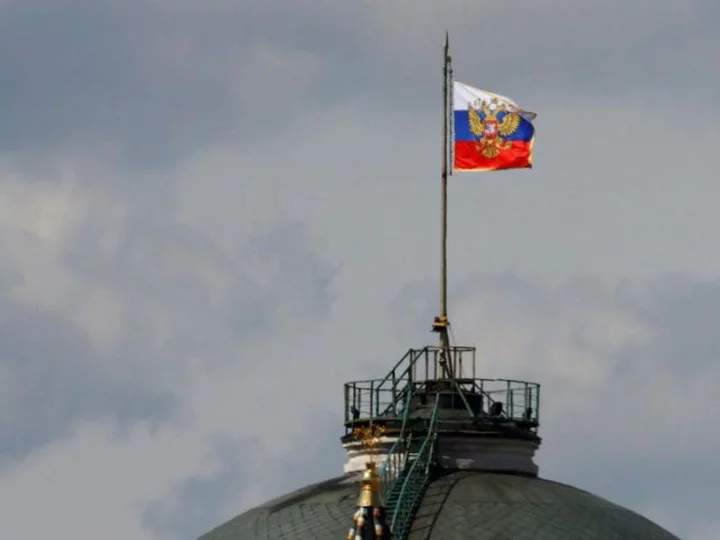In years past, the month of August was often greeted in Russia with a degree of caution, even alarm. Russians spoke in whispered tones of their "August curse" to explain the unusually high number of deadly accidents, terrorist attacks, or outbreaks of war.
For a long time now that curse seemed to have been lifted and almost forgotten, reducing the month to just another hot summer interlude.
But this year, it appears to be back with a vengeance.
For a start, Russians are witnessing a massive upsurge in Ukrainian attacks bringing the Kremlin's war home, making Moscow pay a price and giving ordinary Russians a taste of the horrific violence Ukraine has suffered since last February.
In the Black Sea, Russia's military and commercial fleets have come under attack from Ukrainian naval drones this month, threatening Russian supply and trade routes.
And every day in August so far has seen the news media carry reports of small-scale but incessant Ukrainian drone attacks targeting official buildings, military installations, or commercial and residential premises.
Most are shot out of the sky, according to officials, by bolstered air defenses. But enough get through to give Russians pause.
"We're all shocked that it's happening here," one unnamed woman told local media in Moscow.
"But we are not politicians so we don't want to comment," she added.
There has been a strict crackdown on dissent in Russia, particularly around criticisms of the war in Ukraine.
Another woman appeared on local media with her face blurred to protect her identity: "I have two kids and want to stop being ashamed that they were born in this time," she said.
Other Russians are apparently now taking their opposition a step further, with August witnessing an unprecedented spike in arson attacks against military recruitment offices across the country -- more than two dozen fire-bombings in just over a week, according to Russian state media.
Officials say vulnerable citizens, like pensioners, are being duped into carrying out attacks by Ukrainian agents posing as police or creditors calling in loans and forcing them to act.
But a source linked to one Russian partisan group denies Russians are being coerced, telling CNN that the Kremlin wants to hide the growing discontent in society.
"If people weren't angry with the authorities, they wouldn't do anything," the source told CNN.
The second week of August was no less fraught than the first, and with far more dead and injured.
A mysterious explosion ripped through an industrial plant in the small Russian city of Sergiev Posad, about two hours drive from Moscow, sending a dark mushroom cloud billowing into the skies.
The authorities insist it was a safety lapse at a firework factory, denying reports of sabotage at what was once a leading manufacturer of military optical equipment, like night goggles and gun sights.
Still, the blast caused horrific damage: 440 apartments and 20 private homes struck, according to Russian state media; 184 cars destroyed; 84 people injured, 1 killed, and at least 8 more still missing.
Russia's August curse is back indeed.









